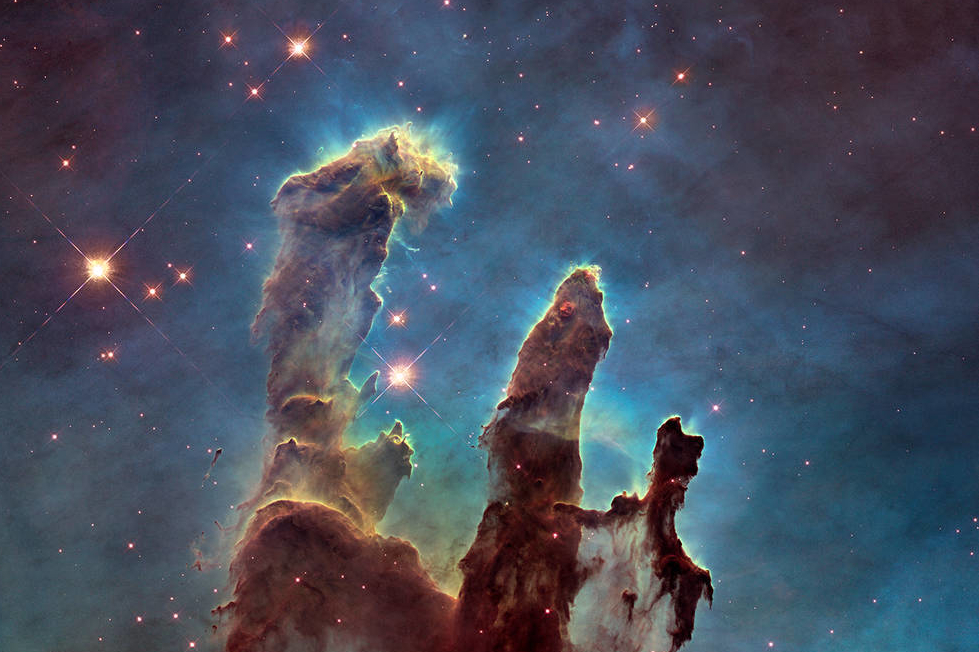On this Shabbat which is called Shabbat hol hamo’ed Pesakh, the Shabbat of the Intermediate Days of Pesakh, we are – just as the name implies – in the middle of the story. The middle is a dreadful place, neither here nor there, full of uncertainty and fear. In short, it is not usually the place where we are at our best. We find fault quickly with others and we succumb to anger all too often.
That wilderness of uncertainty is what our ancestors flung themselves into when they fled the certain misery of Egypt. To take them at their word, it was easily just as bad. For some it was worse, even as some of us would choose to accept a bad answer over a good but eternally open question.
If the message of the Exodus is that we must leave certain misery in order to become free, then the message of this hol hamo’ed Pesakh is that leaving is not a momentary act, but an ongoing lifelong practice.
The language of addiction gets at this idea, but is too confining; all of us are regularly in need of support to continue moving through the wilderness of neither here nor there which is truly the only constant of our lives – if we are awake to it. The stress of this uncertainty is what can bring out either the best that we can become, or, sometimes, the worst of what we have been.
HaShem is our role model here. In the special reading for this Shabbat (not your regular parashat hashavua) we read of the world-destroying anger that Moshe, with unfathomable courage, stands against. Even HaShem is affected by the reality of the wilderness wandering which has just commenced, in which nothing can be predicted with certainty and all are afraid.
We too can destroy worlds with our anger. Worlds of relationship, of belonging, of dependable reliance. In this usefully anthropomorphic passage, just as HaShem tells Moshe of the erupting anger that threatens to end their story, so we should find someone we trust to tell them of the anger we feel, and get help managing it before it destroys something.
Our ancestors derive from this story the lesson that anger is the most destructive human emotion – when turned outward we destroy connection, and when turned inward we destroy ourselves. Like Moshe, we should listen to our companions’ anger for the words that will allow us to bring up another perspective:
וְעַתָּה֙ הַנִּ֣יחָה לִּ֔י וְיִֽחַר־אַפִּ֥י בָהֶ֖ם וַאֲכַלֵּ֑ם וְאֶֽעֱשֶׂ֥ה אוֹתְךָ֖ לְג֥וֹי גָּדֽוֹל׃
“Now, let Me be, that My anger may blaze forth against them and that I may destroy them, and I will then make of you a great nation.” (Ex. 32.10)
At that moment Moshe sees the opening. He does not “let HaShem be,” but jumps in to persuade and cajole – and HaShem is able to hear, and to relent. Just after this exchange, our sages offer stories of other ways in which we can see HaShem as a role model; just like us, HaShem, they assert, also has a need to take time for prayer.
What is HaShem’s prayer?
מַאי מְצַלֵּי? אָמַר רַב זוּטְרָא בַּר טוֹבִיָּה, אָמַר רַב: ״יְהִי רָצוֹן מִלְּפָנַי שֶׁיִּכְבְּשׁוּ רַחֲמַי אֶת כַּעֲסִי.
Rav Zutra bar Tovia said that Rav said “HaShem says: May it be My will that My mercy will overcome My anger.” (BT Berakhot 7a)
May we be reminded of that other quality that we also carry with us, the lifesaving and community building attribute of mercy. This week, the first week of our omer counting period, focuses us on mercy, and its companion characteristics of grace and love. The other name for the Hesed sefirah in Jewish mysticism is Greatness – which is found only in love, never in anger.
Anger is justified in our times as a necessary corrective to abuse. With Brenee Brown I would suggest that this is an impoverished understanding of emotional complexity; what we call “good” anger is actually righteous indignation. To see the difference, simply consider the effects in the world. Does love triumph and community thrive? Then it was not anger.
The wisdom of our ancient tradition indicates that we must read the Song of Songs during Pesakh. May its words help us to learn to balance our anger with love, even during the most uncertain of times. Only with love will we reach any place worth being.
מַ֣יִם רַבִּ֗ים לֹ֤א יֽוּכְלוּ֙ לְכַבּ֣וֹת אֶת־הָֽאַהֲבָ֔ה וּנְהָר֖וֹת לֹ֣א יִשְׁטְפ֑וּהָ אִם־יִתֵּ֨ן אִ֜ישׁ אֶת־כׇּל־ה֤וֹן בֵּיתוֹ֙ בָּאַהֲבָ֔ה בּ֖וֹז יָב֥וּזוּ לֽוֹ׃
Vast floods cannot quench love,
Nor rivers drown it.
If a person offered all their wealth for love,
They would be laughed to scorn. (Song of Songs 8.6)
